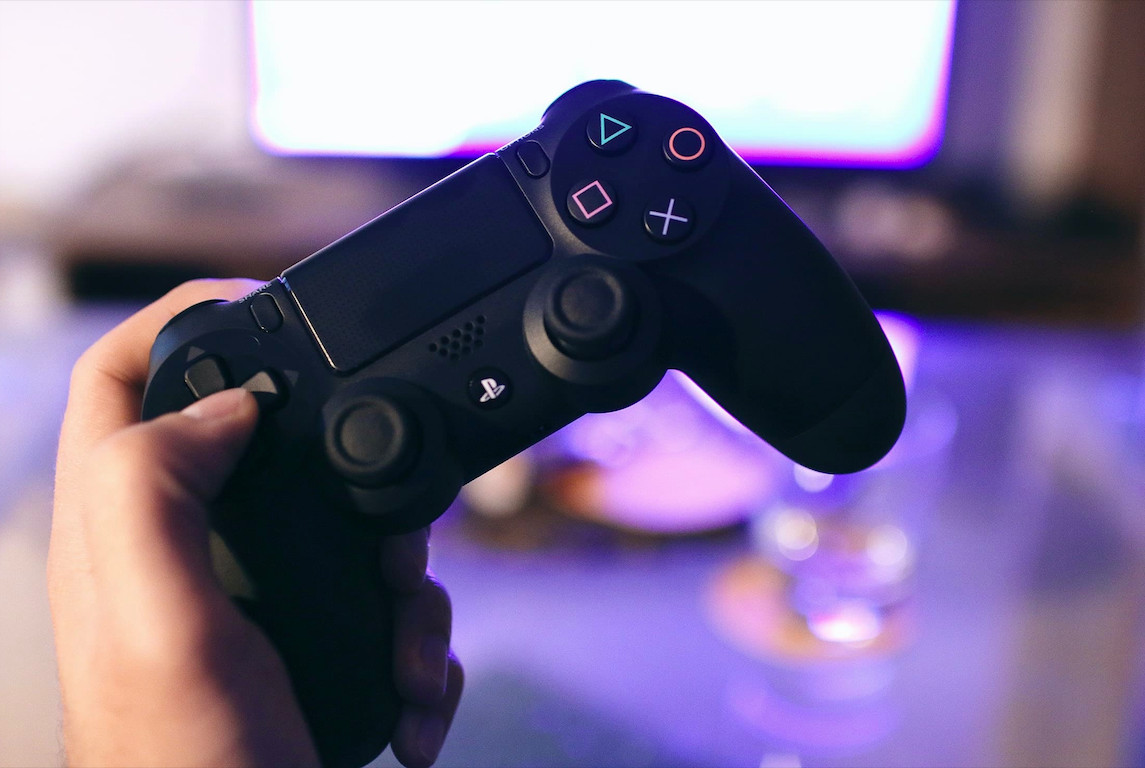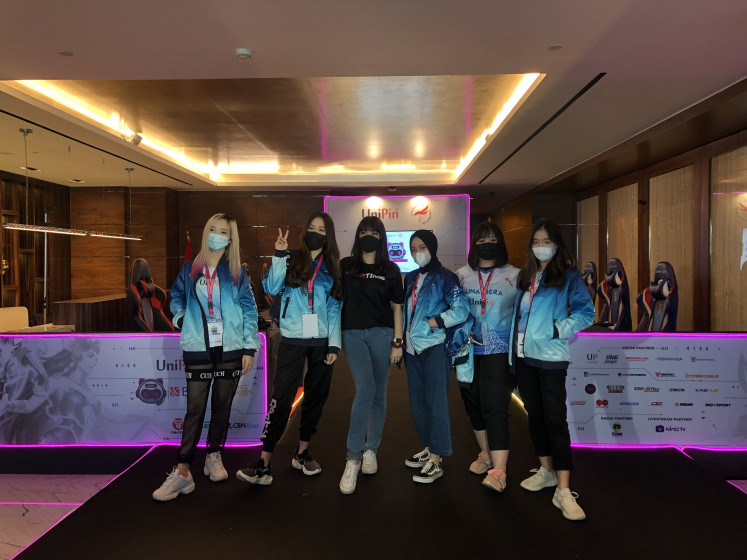Indonesian female gamers continue to fight stigma and sexism
Despite the rapid growth of the local gaming industry, female gamers encounter problems that their male counterparts do not.
Change text size
Gift Premium Articles
to Anyone

Despite the rapid growth of the local gaming industry, female gamers encounter problems that their male counterparts do not.
As Indonesia’s esports sector continues to develop with more professional teams, serious competitions and corporate sponsorship, its female participants – both amateur and professional players – continue to be targeted and harassed by fellow players and fans.
Asia Sports Tech counts about 100 million female gamers in South East Asia, including in Indonesia, Malaysia, Thailand and Singapore.
Debora Imanuella, founder of Luna Nera said that sexism against female gamers has its seed in the societal stigma regarding the roles women have to play in life.
“No matter what we do, they often sexualize female gamers because there’s an unconscious bias about what women and men should play or do,” Debora said.
An infographic by Luna Nera, one of the few local esports communities exclusively made up of female players, shows that out of 150 survey participants, 72.5 percent of female gamers in their community, ranging from 19 to 24 years old, have experienced online harassment. Female gamers are also often subjected to online harassment. Comments such as “It’s better to sell yourself instead of playing games” and other similarly demeaning comments often appear on the live chat boxes that players use to communicate with fans when they stream their gaming sessions.
Indonesia’s female esports community is a growing scene. But the players surely deserve more attention for their achievements rather than their looks. There are many talented teams, like Evos Galaxy Ladies who won the Point Blank International Women’s Championship (PBIWC) 2019, Alter Ego Celeste who won the FSL Valorant Open 2021.

Violent words
“I think there’s a misconception that we [female gamers] are merely a tool to attract viewers. It’s a thing that society will never learn,” explained Fidly Immanda Azzahara, better known as Fia, a streamer and professional gamer.
Fia said that in June, a social media influencer asked Fia to play an online game with him. Fia declined as her mother was in the hospital. The influencer then sent her a message chastising her for declining, saying that he merely needed her for “content” purposes, to attract male viewers.
(The influencer later issued an apology and deleted his social media accounts).
“I don’t think [the apology] was sincere,” Fia said.
Indira Ayu “Inayma” Maharani, who often streams her sessions on YouTube like many other gamers, said that Fia’s story was only the tip of the iceberg.
“There are many players who encounter the same thing, but they never speak out,” Inayma who has over 180 followers on Instagram shared.
Inayma feels that the stigma is also pushing young women away from esports, even if they feel passionate about gaming.
“We also want to enjoy what the gaming industry has to offer, but sexist comments can really affect our mental health,” Inayma said.
During a “roasting” session, which is often held by the gaming community and is meant to feature humorous takedowns of popular gamers, Inayma ended up receiving multiple derogatory comments related to her appearance and perceived “sexiness”.

Muting themselves
Sexism also pressures female gamers to hit the “mute” button when streaming and competing as they receive numerous cat-calls from fellow players. This means they do not hear what others are saying, but it also means they are unable to communicate anything they want to say.
“I think that’s the best way to stay away from the harassment that you receive, although it means you can’t really express yourself that much,” Inayma said. As a gamer Inayma represented Indonesia at the 2020 Valorant Southeast Asia Invitational.
The British gaming website eSport News reports that about 76 percent of female gamers across the globe choose to disguise their appearance online. Moreover, about 59 percent of female gamers (of 900 surveyed from China, Germany and the United States) choose to adopt a non-gendered identity to avoid harassment online.
“It’s almost triggering because when we say a simple word like ‘hi team’, someone will cat-call me, asking me about my personal information including my home address,” Debora said.
Fia said that victims of online gaming are generally reluctant to file complaints because they believe that no change is possible.
Laksmiari Saraswati, a sports psychologist shared that in general, almost all women in sports have experienced some sort of sexist attack.
“We try to provide support through psycho-education. To what extent they can report because they feel uncomfortable,” Laksmiari said.
For Laksmiari it is a systemic issue.
“For ages we were taught not to report anything if the abuser is someone close to us. Because there’s a possibility we can tarnish a relationship if we report it,” she adds.
Laksmiari thinks that the agencies and management that female athletes are under should pay more attention toward their players’ well-being.
Debora says that it will be a hard task to fight the stigma female players face.
“I won't lie,” she says, “female players do get more recognition when they dress a certain way. But people should know that women dress to please themselves [and not to attract male attention]”.
Inayma said that there should be stronger regulations from the esports governing bodies to ban players that harass others online.
The deputy treasurer of Esports Federation of Indonesia (PBESI), Diana Sutrisno, said that the PBESI is currently attempting to improve prevailing regulations, which currently do not have any policies regarding female players. However, Diana does say that the PBESI tries to support female esports players “emotionally” and when possible, offer legal support.
Diana shared that in the future, the PBESI will try to hold more competitions that focus more on female esports players.
“Currently, what we can do is to show that female players also have skills and can compete competitively,” Diana said.









